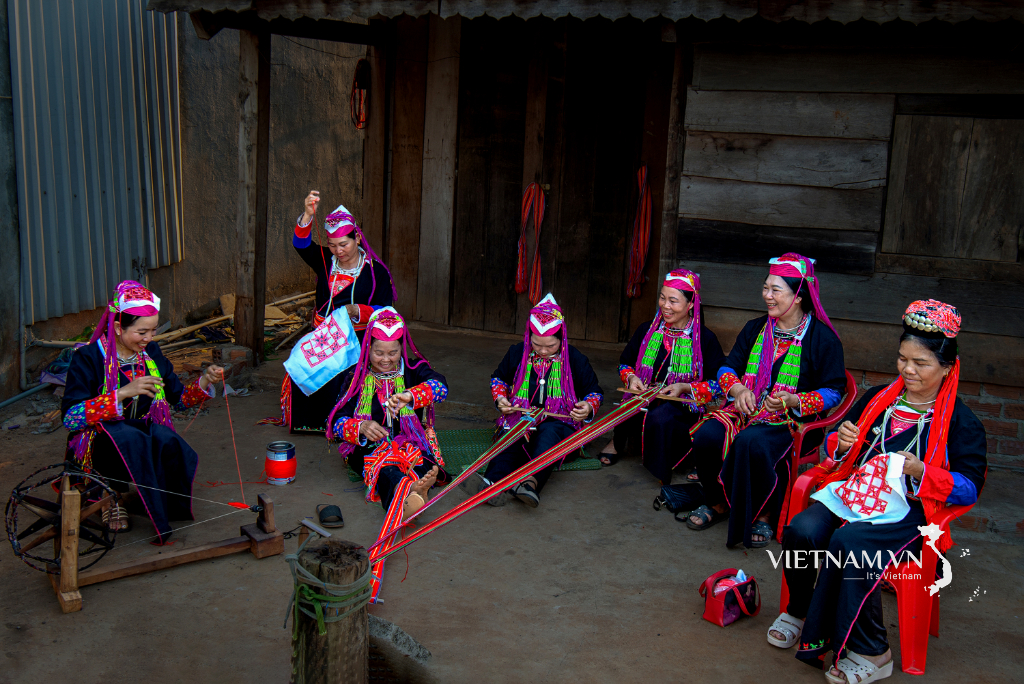In the Can Trai poetry collection, published in Dong Nai Weekend, there is a poem titled "Quat Xa Tao Ti," a place name in the former Binh Phuoc province, the tenth poem in the "Gia Dinh Thirty Scenes," part of the Can Trai poetry collection. In addition, Trinh Hoai Duc also has 18 poems written in Nom script, collectively known as Nom poetry.
Literary fairness dictates that Trịnh Hoài Đức's Nôm poetry cannot compare to the works of Mrs. Huyện Thanh Quan or the "queen of Nôm poetry," Hồ Xuân Hương, and is even less impressive than the Nôm poetry of King Lê Thánh Tông from the 15th century. However, 18 Nôm poems by Trịnh Hoài Đức are believed to have been composed during his diplomatic mission to the Qing dynasty during the reign of Emperor Gia Long, and they are written in a continuous rhyming style, also known as linked rhymes. Different sources have not definitively determined whether these 18 Nôm poems by Trịnh Hoài Đức are included in the Bắc sứ thi tập (Northern Envoy Poetry Collection) or the Đi sứ cảm tác (Impressions from the Diplomatic Mission). Perhaps because they are Nôm poems, later generations placed them in the Đi sứ cảm tác section of his literary career. The Bắc sứ thi tập, on the other hand, contains many poems written in Chinese characters, often referred to as Chinese poems.
For reference, in the collection of poems about the journey to the North, Nguyen Du wrote in Chinese characters while Trinh Hoai Duc wrote in Nom characters. The two were considered contemporaries; Nguyen Du also had a poem dedicated to Ngo Nhon Trinh in the Gia Dinh Three Scholars, which was featured in Dong Nai Weekend.
The 18 Nôm poems by Trịnh Hoài Đức, composed during his diplomatic mission to the Qing Dynasty, follow a linked rhyme/linked verse style. Specifically, the last two words of the concluding line in a seven-word, eight-line Tang Dynasty poem are used as the first two words of the opening line. All 18 poems lack titles, only numbering from 1 to 18. For example, poem 1 has the concluding two lines: "Now meeting an old friend, I offer this song/ Lest I grieve for you, and you look on with sorrow," while the two words "look on with sorrow" begin poem 2: "Looking on with sorrow, I must try my best to please/ In the month of the Rat, on the day of the Tiger, I arrive at the Úc Môn gate."
Poem 2 ends with the line: "Sooner or later, it will all wear away," and Poem 3 begins with: "How can it wear away and share my thoughts?" And so on, until Poem 17 ends with: "But worries remain, the times are still not at peace," and Poem 18 begins with: "Since it is not at peace, what must we do?"
Trịnh Hoài Đức's poetry is rich in love for his homeland and country, specifically through his praise of 30 beautiful landscapes in Gia Định. In his Nôm poetry, written in Nôm script and with more specific Vietnamese pronunciation, he also expresses the loyalty and patriotism of a follower of Lord Nguyễn Ánh, who later ascended the throne as Gia Long, from the very beginning.
In Tang Dynasty seven-word eight-line poems, people usually pay attention to the two pairs of lines: the descriptive lines (3 and 4) and the argumentative lines (5 and 6).
This theme is prevalent in Trinh Hoai Duc's 18 Nôm poems, such as poem 2:
A thousand miles of gratitude, as vast as the ocean.
Countless layers of profound meaning, like mountains piled high.
Under the heavens, who can easily defy me, my lord?
Everyone in the land has a wife and children.
Lesson 3 has two argumentative sentences (sentences 5 and 6):
The full moon's face is veiled by unparted clouds.
The salty sea evokes a deep, indescribable love for the land.
Trịnh Hoài Đức's Nôm poems also depicted everyday life, and because he was a high-ranking official of the imperial court, therefore:
The sky is overcast with clouds, I miss you.
The vast waters flow into the sea, awaiting the king.
(Lesson 6)
Or:
The hero's tears flowed in the midst of parting.
Showing loyalty and righteousness as a subject
(Lesson 12)
Tran Chiem Thanh
Trịnh Hoài Đức's Nôm poetry is known through the Gia Định Tam Gia (Three Scholars of Gia Định) compiled by Hoài Anh, and this book often includes footnotes stating "other books record...", which can be considered variant versions. Nôm script has many instances of similar characters but different pronunciations, not to mention errors in the printing process... A noteworthy sentiment and noble deed is Trịnh Hoài Đức's diplomatic mission to the Qing Dynasty, where he composed poetry in his mother tongue to express his feelings; this is a legacy of his predecessors.
Source: https://baodongnai.com.vn/dong-nai-cuoi-tuan/202510/tho-nom-trinh-hoai-duc-00a022d/



![[Photo] General Secretary To Lam presides over a meeting with the Editorial Teams to summarize 100 years of the Party's leadership of the Vietnamese revolution and 40 years of implementing the National Construction Program.](https://vphoto.vietnam.vn/thumb/1200x675/vietnam/resource/IMAGE/2026/03/04/1772601288977_a1-bnd-8134-7576-jpg.webp)
















































































































Comment (0)